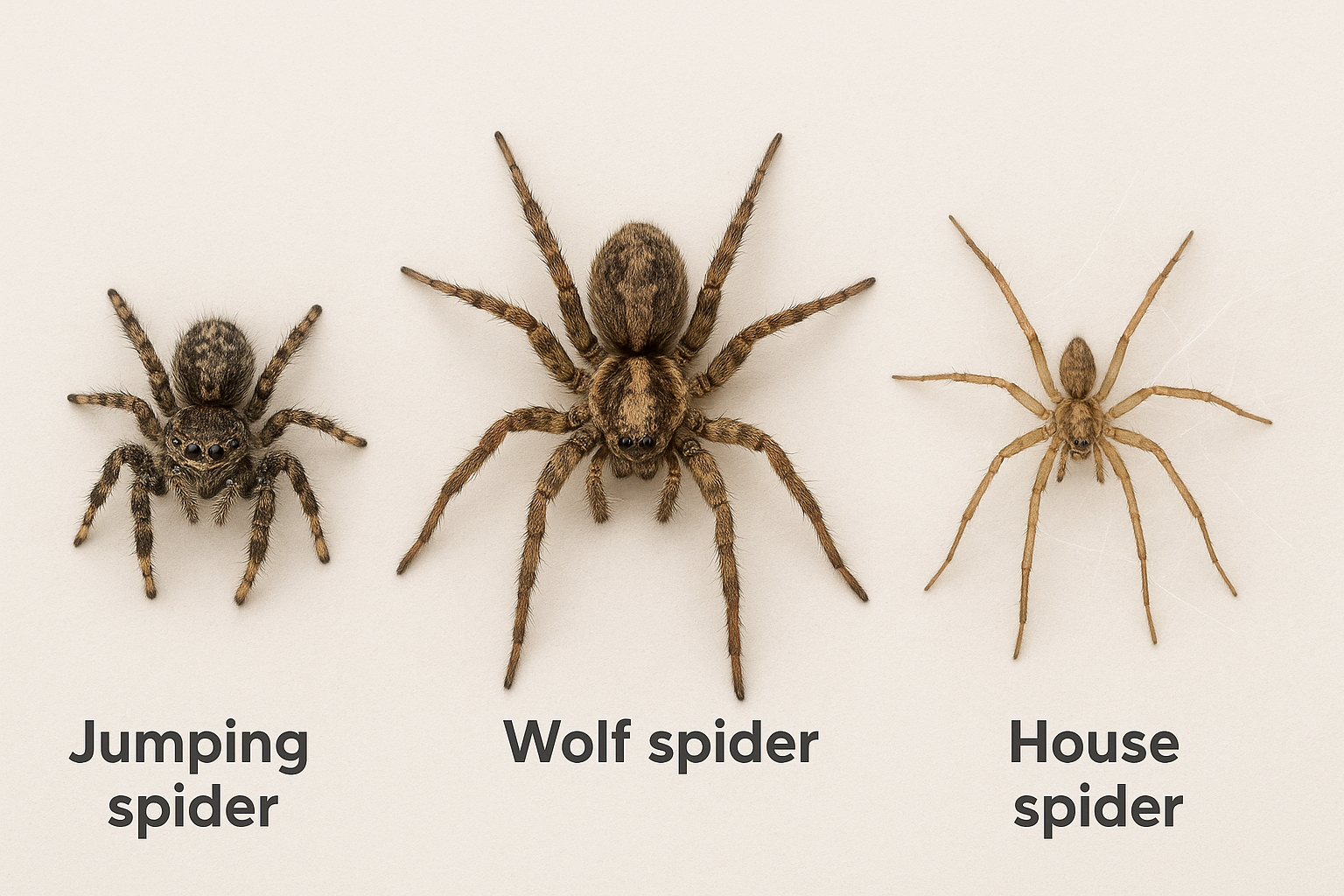Spiders have been lurking in the corners of our homes and the shadows of our gardens for millions of years — but have you ever wondered how long do spiders live before they disappear (or get swept up with a broom)? The answer isn’t one-size-fits-all. A spider’s lifespan depends on its species, environment, and even how much food it has access to.
Today, we’re diving into the lifespans of three familiar (and fascinating) species — jumping spiders, wolf spiders, and house spiders — plus what factors can cut their lives short or help them thrive.
How Long Do Spiders Live on Average?
Most spiders live for about one to two years, but some can live far longer under the right conditions. Certain tarantulas, for example, can survive over 20 years in captivity. Smaller household spiders tend to live shorter lives, but even they can surprise you with their resilience.
How Long Do Jumping Spiders Live?
Jumping spiders are the daredevils of the spider world — tiny acrobats that stalk their prey with precision before leaping in for the kill. They’re also known for their big, curious eyes and quirky personalities (yes, spiders can be cute).
- Average lifespan: 6 months to 1 year in the wild.
- In captivity: Up to 2 years with proper care.
Jumping spiders live fast and adventurous lives. Males typically die shortly after mating, while females live a bit longer, especially if they have eggs to guard. Their biggest threats are predators, weather, and starvation.
How Long Do Wolf Spiders Live?
Wolf spiders are hunters, not web-builders. They roam the ground in search of prey, often startling humans with their size and speed. Despite their intimidating appearance, they’re generally harmless to people.
- Average lifespan: 1 to 2 years in the wild.
- In captivity: Sometimes up to 3 years.
Female wolf spiders are dedicated mothers, carrying their egg sacs with them and later letting spiderlings ride on their backs until they’re ready to fend for themselves. Their survival depends heavily on avoiding larger predators and harsh winters.
How Long Do House Spiders Live?
House spiders — the eight-legged roommates you never invited — are surprisingly long-lived for their size.
- Average lifespan: 1 to 2 years indoors.
- In favorable conditions: Up to 3 years.
Because they live inside, they’re shielded from extreme temperatures and predators. Males typically don’t last as long as females, especially after mating, but females can live multiple years if undisturbed.
How Long Do Spiders Live Without Food?
If you’ve ever sealed off a room and come back weeks later to find your resident spider still hanging out, you might be wondering: how long do spiders live without food?
- Average survival time without food: 1 month to 2 months for many common species.
- Larger species or those in cooler environments may survive even longer by slowing their metabolism.
However, no spider can survive indefinitely without food — they eventually run out of stored energy. Water, though, can be even more important; dehydration can kill a spider faster than starvation.
Factors That Affect Spider Lifespan
Several things influence how long a spider lives:
- Species — Jumping, wolf, and house spiders all have different lifespans.
- Environment — Indoor spiders live longer thanks to fewer predators and steady temperatures.
- Food availability — A steady diet of insects can significantly extend lifespan.
- Predators — Birds, lizards, and even other spiders are constant threats.
- Mating cycle — Males often die shortly after mating.
Do Spiders Live Longer in Captivity?
Yes — many spiders live longer in captivity because they have access to regular food, protection from predators, and controlled temperatures. For example, a house spider that might live 2 years indoors could reach 3 years if kept as a pet in ideal conditions.
Final Word — Respect the Eight-Legged Lifespan
So, how long do spiders live? For the average jumping spider, you’re looking at less than a year. Wolf spiders may make it to 2 years, and house spiders can stick around for up to 3. Without food, they might survive for a month or two, but every spider’s story is a little different.
Whether you admire them or want them far from your home, one thing’s for sure — these creatures live fascinating (and sometimes surprisingly long) lives.











